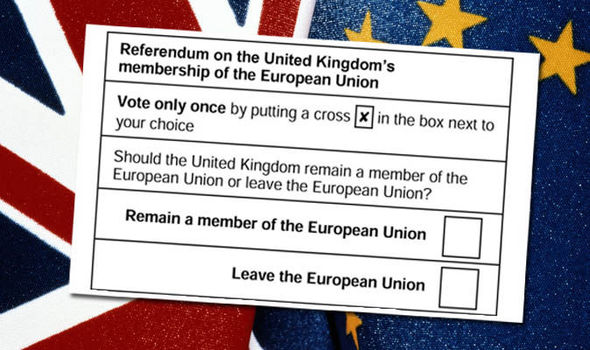The referendum to decide whether the United Kingdom should leave or remain in the European Union (EU) is an important landmark in the country’s history.
Trade, immigration, sovereignty and jobs are just some of the areas which could be affected by the so-called “Brexit”.
Football could be seriously impacted if the UK leaves the EU, with hundreds of players under threat of losing the right to play in the country if a vote to exit is returned.
EU passport holders are currently free to play in the UK, while those without must meet strict Home Office criteria to get a work visa.
A recent study by the BBC reported that 332 European players currently playing in the Premier League, Championship and Scottish Premiership would fail to meet the strict non-EU criteria if the UK broke away.
Teams like Watford, Aston Villa and Newcastle United would be hardest hit, with each facing the loss of 11 players from their squads.
“Leaving the EU will have a much bigger effect on football than people think,” said football agent Rachel Anderson.
“We’re talking about half of the Premier League needing work permits.
“The short-term impact would be huge but you could argue it will help in the long term as it could force clubs to concentrate on home-grown talent.”
Players including Dimitri Payet of West Ham United and Leicester City’s N’Golo Kante could be affected, while David de Gea and Anthony Martial of Manchester United, and Manchester City’s Eliaquim Mangala, Jesus Navas and Samir Nasri are others who may suffer.
“Cutting ourselves off from Europe would have devastating consequences,” warned Karren Brady, chairman of West Ham United, in a letter to Premier League clubs earlier this year.
“Losing this unhindered access to European talent would put British clubs at a disadvantage compared to continental sides.”
Neither the Premier League or Football Association are sure what would happen if the UK votes to leave, although there are a number of ideas which could help clubs if this happens.
Brian Monteith of the Leave.eu campaign believes that the UK leaving the EU could result in a relaxation of the rules, making it easier for clubs to sign players.
“The freedom of movement for people in the EU comes at the price of heavy restrictions on visas for potential signings from Africa, the Caribbean, South America and Asia,” he told the BBC.
“Once we leave the EU, the UK will be free to treat footballers from all countries equally, which will broaden the pool of talent for our teams, not reduce it.”
Professor Raymond Boyle from the University of Glasgow also thinks the UK would follow the likes of Norway and Switzerland in relaxing their work permit rules to remain competitive.
“I would be surprised if those work permit rules were not re-calibrated,” he said.
“Countries such as Switzerland simply make their own rules. My sense is that elite commercial sport will always have the clout to influence rules so that they benefit.”
Domestic quotas have also previously been suggested, with disgraced ex-FIFA president Sepp Blatter an advocate of a 6+5 plan which would force teams to field at least six players in their first team from the country in which the club plays.
With countries such as Russia arguing this type of rule has affected the quality of their domestic competition and international team, this could be a dangerous move to make.
However, promising youngsters like Manchester United’s Marcus Rashford and Everton’s Ross Barkley could benefit from such a system.
Top football agent Simon Bayliff said: “This could be a positive thing for home-grown players in the longer term.
“The downside could be the value of the Premier League decreasing, as its attraction is the collection of foreign stars across many clubs.
“I don’t personally believe it will have a huge impact on the biggest names but it could have an effect on the general traffic of non-star international players, which may hurt the league’s quality and attractiveness to foreign investors.
“But all this depends on how we Brexit – and that is impossible to predict.”
While football would potentially be hit hardest by the UK leaving the EU, other sports including cricket and rugby could have similar questions to resolve.
There could also be issues which impact the sports industry as a whole, with possible price increases of sportswear and equipment if tariffs are added to EU goods exported to the UK.
This could impact participation levels in sport and the ability to actually get people playing sport.
Funding for sports development could also be affected, with the UK government currently spending around £350 million every year on this through UK Sport.
Some of this money comes directly from the EU, while universities, sporting bodies and national governing bodies can all apply for EU funding.
If the UK does vote to leave the EU on June 23, it’s clear there could be some serious issues for both elite sport and further down the scale too.
For football at the highest level in the UK, a lowering in European immigration could easily have a positive impact.
Since the Premier League became one of sport’s most valuable competitions, the national teams have struggled due to a lack of home-grown talent playing regularly on the biggest stage.
Removing some European players could help level the playing field, giving UK players the chance to progress which is often denied in the current era.
Whatever the outcome of the vote, it cannot be argued it is an important one for sport as a whole in the UK.
Add Sportslens to your Google News Feed!
